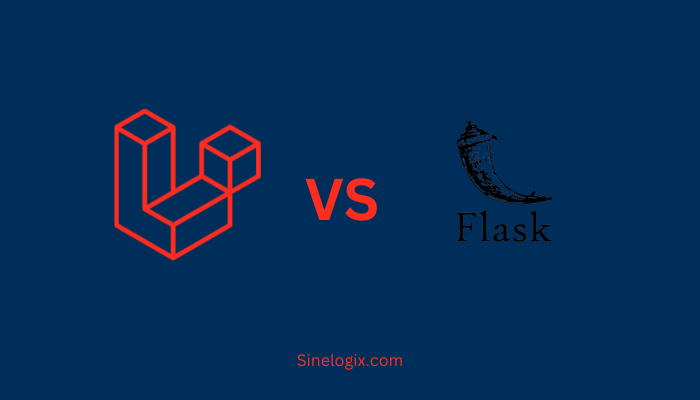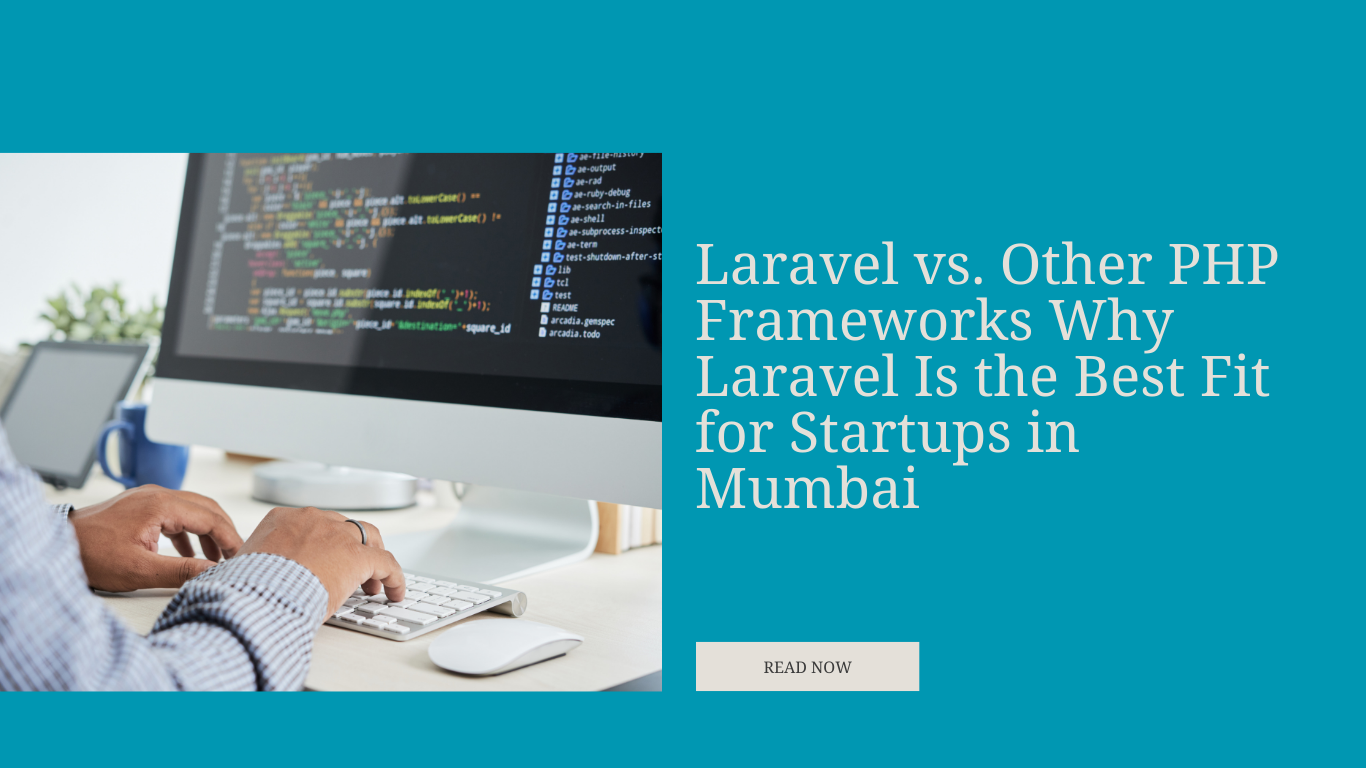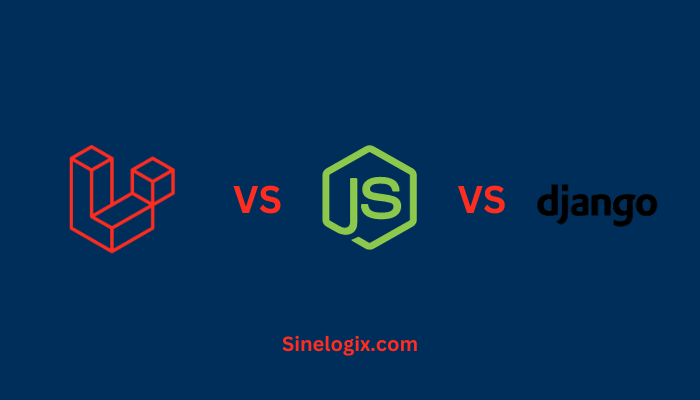In the dynamic world of web development, selecting the ideal framework can significantly impact the success and efficiency of your projects.
Laravel, a prominent PHP framework, and Flask, a minimalist Python framework, cater to developers with different preferences and project requirements. Laravel boasts a rich feature set tailored for PHP-based web applications, while Flask’s lightweight and modular design provides a more flexible approach for Python-based development.
This article will meticulously compare and contrast Laravel and Flask across various essential aspects, aiding developers in choosing the right framework for their specific web development needs.
1. Ease of Learning and Documentation
Laravel:
Laravel, built on PHP, can be intuitive for developers already familiar with PHP. Its comprehensive documentation, along with a supportive community, provides extensive resources, tutorials, and forums, aiding beginners in learning the framework’s conventions and functionalities.
Flask:
Flask’s minimalistic design and adherence to Python’s simplicity make it relatively easy for beginners to grasp. Its concise documentation and Pythonic structure contribute to a smooth learning experience, enabling quick familiarity with the framework’s principles.
2. Performance and Scalability
Laravel:
With its extensive feature set, Laravel can exhibit slightly lower performance in complex applications. However, its caching tools and optimization mechanisms aid in managing high-traffic scenarios, ensuring acceptable performance levels.
Flask:
Flask’s lightweight nature often results in faster performance, especially in smaller-scale applications. However, in larger projects, additional configurations might be necessary for scaling up, as Flask is less preconfigured for scalability than Laravel.
3. Architecture and Extensibility
Laravel:
Laravel follows the Model-View-Controller (MVC) architectural pattern, offering a structured approach. It provides a robust ecosystem with built-in features and an array of extensions and packages available through Composer, allowing for seamless application expansion.
Flask:
Flask embraces flexibility, enabling developers to structure their applications as they see fit. Its simplicity allows for a more modular and customized approach to building applications, offering a high degree of freedom in architecture design.
Continuing on from these key aspects, we can further explore factors like security, community support, database handling, ecosystem and package management, and specific use cases to paint a comprehensive picture of the differences and strengths between Laravel and Flask.
4. Security Features
Laravel:
Laravel prioritizes security, offering built-in tools for protection against common web vulnerabilities. It includes features for safeguarding against SQL injection, cross-site scripting, and cross-site request forgery. Its authentication and authorization systems are robust, contributing to a secure environment. That’s why, for better security reasons business owners love to develop their site on Laravel with the help of our Laravel development services.
Flask:
Flask provides security features but puts more responsibility on developers to implement them. While it doesn’t have as many built-in security features as Laravel, it allows developers the flexibility to choose and integrate specific security measures based on their project’s requirements.
5. Community and Ecosystem
Laravel:
Laravel boasts a thriving community offering extensive support, frequent updates, and a plethora of third-party packages available through Composer. The ecosystem facilitates easy extension of functionalities, contributing to the framework’s popularity and versatility.
Flask:
Flask’s community, while strong, might not be as extensive as Laravel’s. However, it still offers various extensions and libraries to support developers. Its smaller ecosystem may require more custom solutions for specific project needs.
6. Database Support and ORM
Laravel:
Laravel supports multiple databases and offers Eloquent, an eloquent ORM, simplifying database operations. Its expressive query builder makes database handling more straightforward, allowing seamless integration with various database systems.
Flask:
Flask offers more flexibility regarding database choice, allowing integration with various databases. However, it doesn’t come with a built-in ORM, which might require developers to rely on separate ORMs or handle database operations more manually.
These facets, along with factors like scalability, testing capabilities, deployment ease, and long-term support, play significant roles in choosing the right framework for a web development project. Each aspect showcases distinct strengths and trade-offs between Laravel and Flask, guiding developers to align their choices with their project requirements and preferences.
7. Testing and Quality Assurance
Laravel:
Laravel promotes testing via integration with PHPUnit, facilitating unit and feature testing. Its support for test-driven development (TDD) ensures robust and reliable code, enhancing the application’s quality and maintainability.
Flask:
Flask offers basic testing tools, but it might require the integration of third-party testing libraries. While testing is possible in Flask, it may demand more manual configuration and effort compared to Laravel’s more integrated approach.
8. Deployment and Hosting
Laravel:
Laravel applications are typically hosted on PHP-supported servers. Several hosting providers accommodate PHP, simplifying deployment. Services like Laravel Forge and Envoyer further streamline the deployment process.
Flask:
Flask applications may require hosting on servers compatible with Python frameworks. The varied hosting environment might demand more specific configurations compared to standard PHP hosting.
9. Industry Adoption and Job Market
Laravel:
Laravel’s popularity is evident in the job market, especially in PHP-based projects. Its demand for developers remains high, making it a favorable choice for companies relying on PHP-based web applications.
Flask:
Flask has a presence in the job market, often used in projects leveraging Python frameworks. However, its demand might be lower compared to Laravel, limiting job opportunities specifically focused on Flask development.
10. Licensing and Cost
Laravel:
Laravel is open-source and free to use, allowing commercial utilization without licensing costs. However, additional tools and services related to Laravel, like Forge and Envoyer, might come with associated expenses.
Flask:
Flask is also open-source and free to use, aligning with the open-source nature of Python. This makes it cost-effective for commercial projects without incurring licensing fees.
Each aspect, whether it’s integration with third-party services, job market demand, or the cost implications, adds layers to the comparison between Laravel and Flask, assisting in decision-making when choosing the right framework for specific project requirements.
11. RESTful API Development
Laravel:
Laravel is well-equipped for building RESTful APIs, providing tools like resource controllers, middleware, and API rate limiting. Its built-in functionalities facilitate the development of APIs and microservices.
Flask:
Flask allows developers to create RESTful APIs; however, it might require more manual configuration compared to Laravel. Its flexibility can be advantageous for customizing API endpoints but might demand more explicit setup.
12. Upgrading and Maintenance
Laravel:
Laravel provides clear guidelines and tools for upgrading between versions. Its well-documented upgrade process simplifies the task of keeping applications up-to-date, ensuring stability and ongoing support.
Flask:
Flask’s upgrade process might require more manual effort, and transitioning between versions could demand more attention to compatibility and adjustments, making maintenance slightly more complex compared to Laravel.
13. Integration with Third-Party Services
Laravel:
Laravel integrates well with various third-party services through APIs and packages. Its compatibility with cloud services, payment gateways, and social media platforms is facilitated by a wide range of extensions and APIs.
Flask:
Flask also offers integration with third-party services through its wide range of extensions. Its flexibility allows developers to seamlessly connect with external services and APIs, albeit with more customization required.
14. Long-Term Support and Ecosystem
Laravel:
Laravel’s ecosystem continues to grow and receive frequent updates, ensuring long-term support. Its vast community and wide array of resources contribute to the framework’s evolving and robust ecosystem.
Flask:
Flask’s ecosystem is dynamic, but due to its lightweight nature, it might have a comparatively smaller community and ecosystem. However, the available resources and extensions cater to developers’ needs.
From RESTful API development to long-term support and ecosystem growth, each facet contributes to the overall comparison between Laravel and Flask, aiding developers in determining which framework aligns best with their project objectives and technical requirements.
15. Global Adoption and Job Market
Laravel:
Due to its prevalence in PHP-based projects, Laravel developers are in high demand in the job market. The framework’s popularity and widespread use contribute to numerous job opportunities in this space.
Flask:
Flask has a presence in the job market, especially in projects utilizing Python frameworks. However, the demand for Flask developers might be comparatively lower than that for Laravel, limiting job opportunities specific to Flask development.
16. Framework Upgrading and Maintenance
Laravel:
Laravel offers a more streamlined upgrading process with well-documented guidelines. Its Long-Term Support (LTS) releases provide stability and support for ongoing maintenance, making the upgrading process smoother.
Flask:
Flask’s upgrades may require more manual effort, potentially demanding greater attention to compatibility and adjustments between versions. Maintaining older Flask applications might be slightly more intricate compared to Laravel.
17. Learning Resources and Documentation
Laravel:
Laravel offers extensive documentation and a robust community providing tutorials, forums, and resources. Learning materials specifically tailored to Laravel aid developers in mastering the framework.
Flask:
Flask’s documentation is concise and approachable, supplemented by a supportive community. While the resources might not be as extensive as Laravel’s, they are comprehensive enough to support the learning process.
18. Testing and Quality Assurance
Laravel:
Laravel integrates with PHPUnit, fostering unit and feature testing. Its support for test-driven development (TDD) ensures code reliability and quality, facilitating robust applications.
Flask:
Flask offers basic testing tools but might require more manual effort and configuration compared to Laravel. While testing is feasible, it may demand additional setup and frameworks for comprehensive testing.
Each aspect, from job market demand to documentation and testing capabilities, contributes to the broader comparison between Laravel and Flask, offering developers a comprehensive understanding of the strengths and considerations when selecting the right framework for their projects.
Related Articles:
Conclusion
Laravel is a favorable choice for complex, enterprise-level applications due to its comprehensive features and conventions, ideal for developers experienced in PHP. Conversely, Flask shines for smaller to mid-sized projects, offering a lightweight, customizable, and modular approach in Python.
Understanding the unique demands of your project and the skill sets of your team will guide the decision-making process. Laravel and Flask each bring their strengths to the table, catering to diverse development needs. Ultimately, the right framework choice hinges on aligning the framework’s strengths with the project’s specific requirements and the team’s expertise.




